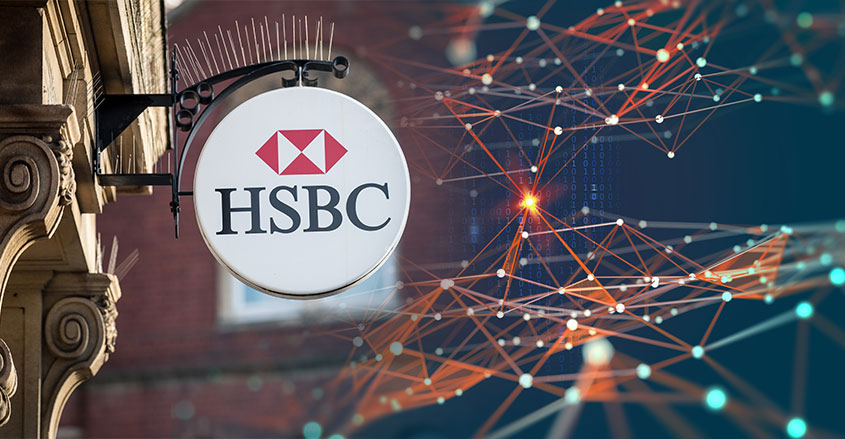London-based HSBC financial services and bank claims that it has initiated the world’s first trade finance transaction utilizing blockchain technology.
The bank says the transaction occurred in early May.
Blockchain is the underlying technology system that allows for the anonymous creation and verification of Bitcoin and other cryptocurrencies.
The creation of cryptocurrencies is recorded on a public ledger called a blockchain. The blockchain is only available to computers and users using the network.
Importantly, the HSBC transaction was not made using crypto, but the underlying tech, which promises to slash the cost of financial transactions which can running into the trillions of dollars.
To verify its claim, HSBC issued a letter of credit for U.S. agriculture firm Cargill stating the use of blockchain in its transaction.
HSBC is not the first financial institution to utilize blockchain technology in its day-to-day operations.
However, HSBC is the first financial institution to prove that its blockchain-derived transaction has verifiable commercial applications.
HSBC’s letter of credit was issued between the bank and Dutch lending company ING. The transaction via blockchain technology involved a large shipment of soybeans moving from Argentina to Malaysia.
HSBC’s letter of credit is crucial in verifying the efficiency of the transaction and blockchain’s adaptable future potential. The transaction between HSBC and ING’s took 24 hours to complete, virtually lightspeed in comparison to previous methods.
Traditional letters of credit transactions involve lengthy paper trails and frequent physical and logistical verifications — plus a lot of time. Most letter of credit transactions can take anywhere between 5 and 10 days via traditional paper transactions.
Vivek Ramachandran, head of growth and innovation at HSBC, stresses the transaction’s potential for future development.
“The need for paper reconciliation is removed because all parties are linked on the platform and updates are instantaneous,” said Ramachandran.
“The quick turnaround could mean unlocking liquidity for businesses.”
HSBC made the transaction via the “Corda” platform.
Corda develops a financial industry viable blockchain and is the brainchild of a company called R3, a tech startup that maintains a consortium of 200 banks, exchanges, and clearing houses.
The goal of R3 and its affiliated partners is to create a reliable and secure blockchain transaction infrastructure for the global finance industry.
Efficiency
While many critics have no use for cryptocurrencies, blockchain technology is another matter.
Blockchain technology, once the domain of cryptocurrency enthusiasts, is slowly being co-opted by the very industries that once feared the rise of Bitcoin.
Many central bank authorities and financial experts praise blockchain technology’s adaptable application to everyday transactions.
In the near future, blockchain technology could make financial transactions speedier, more efficient and near instantaneous. Further, blockchain technology will enable the processing of massive amounts of data in shorter spans of time with enhanced security.
Such transactions will be all verifiable only to the involved and authorized parties.
HSBC is not the only bank making history with blockchain technology powered transactions.
Spain’s Santander bank in Boston collaborated with blockchain company Ripple to expedite same-day international monetary transfers in April 2018.
Meanwhile, J. P. Morgan Chase filed a patent in October 2017 for blockchain technology that expedites transactions between banks.


